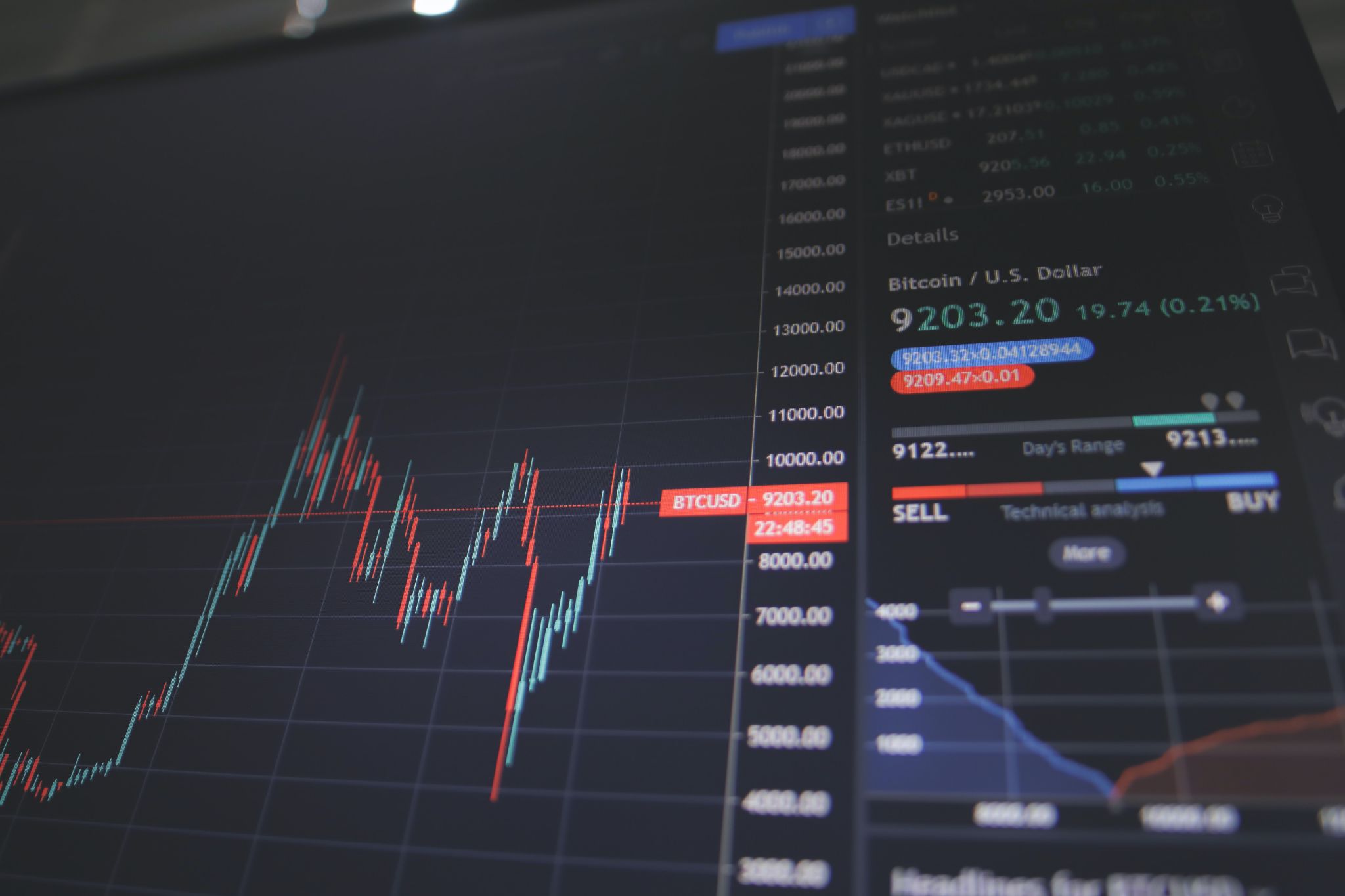Financial markets are essential to capitalist economies. Financial markets include stock, bond, foreign exchange, and derivatives markets. Platforms like TradingView can give you the tools you need to participate in all aspects of the financial markets. In this article, we’ll go over those aspects in detail.
Market fundamentals
Financial markets supply enterprises and entrepreneurs with resources and liquidity, supporting the smooth operation of capitalist economies. The markets make trading financial assets simple. Financial markets provide securities that provide a return to investors and lenders while also making money available to those in need (borrowers).
The stock market is a kind of financial market. Shares, bonds, currencies, and derivatives are all part of the financial markets. Transparency of information aids financial markets in determining efficient and suitable pricing. The market value of securities may be distorted by taxes and other macroeconomic forces.
Some financial markets are small and inactive, while others, such as the NYSE, handle billions of dollars every day. The stock exchange enables investors to buy and sell publicly traded corporate shares. IPOs are listed on the main stock exchange. Secondary market traders purchase and sell equities they already hold.

Market segments
Investing
The most frequent financial market is the stock market. Traders and investors purchase and sell firm stock here. Companies use stock markets to raise capital via an initial public offering (IPO), after which shares are sold in a secondary market.
Stocks may be traded on the NYSE or Nasdaq, or they can be traded over the counter (OTC). Most stock trading occurs on regulated exchanges, which play an essential role in the economy by providing capital gains and dividend income to investors, especially those with IRAs and 401(k) plans.
Typical stock market participants include investors, traders, market makers (MMs), and specialists who maintain liquidity and provide two-sided marketplaces. Brokers facilitate transactions between buyers and sellers but do not hold equities.
OTC
Participants in an over-the-counter (OTC) market trade securities directly between two parties without the need for a broker. OTC markets may trade some stocks (for example, those of smaller or riskier corporations that do not meet exchange listing rules), although the majority of trading takes place on exchanges. OTC derivatives markets are an important component of financial markets. OTC markets are less regulated, have lower liquidity, and are more opaque.
Bonds
In a bond, an investor borrows money for a certain period of time at a fixed interest rate. A bond is a borrowing and payment arrangement between a lender and a borrower. Bonds are issued by municipalities, states, and sovereign governments to support projects and operations. Treasury bills and notes are sold on the bond market. Bonds are also known as debt, credit, and fixed-income securities.
Investing
Money markets offer highly liquid, short-term (less than a year) securities with high safety and low interest rates. On the wholesale money markets, institutions and merchants transact massive amounts of money. Individuals may purchase money market mutual funds and open money market bank accounts. Individuals may invest in the money market by buying short-term CDs, municipal bonds, or US Treasury bills.
Derivatives
Derivatives are contracts whose value is determined by an underlying financial asset (such as a security) or group of assets (like an index). Derivatives are secondary securities that receive their value from a parent security. Derivatives are meaningless. Futures, options, and other complicated financial instruments based on bonds, commodities, currencies, interest rates, market indexes, and stocks are traded in a derivatives market.
Futures trading takes place on futures markets. Futures markets are well regulated, utilise standardised contract specifications, and settle and confirm transactions via clearinghouses. Options exchanges, such as the CBOE, list and regulate options contracts. Contracts on equities, fixed-income instruments, commodities, and other assets are listed in the futures and options markets.

Forex
Participants in the forex (foreign exchange) market buy, sell, hedge, and speculate on currency pairs. The FX market is the most liquid because cash is the most liquid asset. Daily transactions in the currency market exceed those in futures and equities combined.
FX, like OTC markets, is based on a global network of computers and brokers. The forex market is made up of banks, commercial companies, central banks, investment firms, hedge funds, and retail forex brokers and investors.
Commodities
Commodity markets are places where producers and consumers exchange physical commodities such as maize, cattle, soybeans, oil, gas, carbon credits, precious metals (gold, silver, platinum), and “soft” commodities (such as cotton, coffee, and sugar). Spot commodity markets are where things are traded for cash.
The majority of commodity trading takes place on derivatives markets, which employ spot commodities as underlying assets. Commodity forwards, futures and options are traded both over-the-counter (OTC) and on publicly traded exchanges such as CME and ICE (ICE).
Cryptomarkets
Decentralised blockchain-based digital assets such as Bitcoin and Ethereum have grown in popularity in recent years. Thousands of cryptocurrency tokens are traded on numerous online markets throughout the world. These exchanges provide digital wallets via which dealers may transfer cryptocurrency or fiat money.
On centralised cryptocurrency exchanges, users are subject to hacks or fraud. Decentralised exchanges may also be accessed. These exchanges provide peer-to-peer trading of digital currencies in the absence of an exchange authority. Futures and options trading are available on major cryptocurrencies.
Examples of markets
The preceding lines demonstrate the vastness of “financial markets.” Consider the significance of stock markets in getting a company to go public, as well as the OTC derivatives market in 2008–2009.
IPOs and stocks
A starting company needs investment capital. As a company grows, it requires more capital than it can get from operations or a bank loan. This amount of money may be raised by a company via an initial public offering (IPO). This transforms the organisation from a “private” company with few owners to a publicly listed company with numerous investors.
The IPO enables early investors to cash out a portion of their stake, sometimes generating substantial profits. During pre-marketing, underwriters determine the IPO price.
Once a company’s shares are listed on a stock exchange and trading starts, their price will fluctuate as investors and traders assess their intrinsic value as well as supply and demand.

Market Frequently Asked Questions
What financial marketplaces are there?
Financial markets and their duties include stocks, bonds, currencies, commodities, and real estate. Financial markets include capital markets, money markets, primary vs secondary markets, and listed vs OTC markets.
What motivates the financial markets?
All financial markets work by bringing together buyers and sellers of some asset or contract and allowing them to trade. Price discovery procedures such as auctions are utilised.
Financial markets provide a variety of functions.
In a financial economy, financial markets enable the efficient deployment of money and assets. Financial markets help the global economy run smoothly by allowing the free movement of capital, financial obligations, and money. They also allow investors to make long-term capital gains.
Financial markets are very important.
Capital allocation would be inefficient without financial markets, decreasing economic activity, trade, investments, and growth.
Who rules the financial markets?
Companies are funded by investors via the stock and bond markets. Speculators utilise various asset classes to make directional bets on future prices; hedgers use derivatives markets to mitigate risks; arbitrageurs take advantage of market mispricings or anomalies. Brokers act as intermediaries between buyers and sellers in exchange for a commission or fee.







